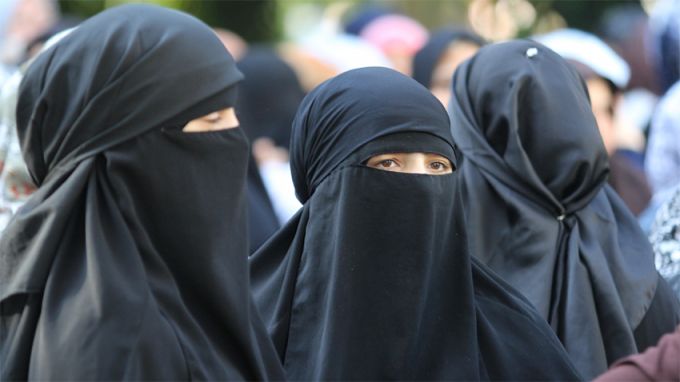
Recently asked whether a ban on wearing burkas in public places should be introduced in Bulgarian legislation, Prosecutor General Sotir Tsatsarov replied that wearing burkas should be restricted especially in schools and universities. He also recommended conducting the discussion very carefully so as not to hurt religious feelings. The statement of the Prosecutor General was associated with combating Islamic radicalization in Bulgaria, because it was delivered in the city of Pazardjik while hearing was held there from the trial against 14 Muslims accused of propagating anti-democratic ideology and war. This was followed by a public debate suggesting that the burka topic is fairly sensitive.
Deputy Prime Minister and Minister of Education Meglena Kuneva supported the stance of the Prosecutor General during a meeting with more than 400 teachers and school principals but later commented that the problem is overexposed because five girls or so wear burkas in Bulgarian schools. Kuneva however thinks that the problem should be widely discussed with a view to making refugees comply with the country's traditions.
The parliamentary nationalist organizations VMRO and the National Front for the Salvation of Bulgaria are openly and adamantly for a ban on burkas. The nationalists have pointed out that the burka is not typical of Bulgarian Muslims and its spread is not an expression of religious feelings but more a political act aimed to show that Islam is expanding its presence in the country. Other parliamentary parties have for the time being kept silent on the issue. The Bulgarian Orthodox Church and the Grand Mufti of local Muslims have not commented on it either.
Unlike these institutions, there has been a vocal response at the level of experts and NGOs. Longtime journalist and former Bulgarian Ambassador to Egypt Ivan Gaytandjiev believes that the stand of Prosecutor General Tsatsarov is the right one and corresponds to the attitudes of Bulgarian society to wearing burkas which are mentioned nowhere in the Quran and are rather an open symbol and a dangerous façade of radical Islam and as such have been banned in Germany, France, Belgium and even in parts of Turkey. On the other side of the debate is the CEO of the International Center for Minority Studies and Intercultural Relations Antonina Zhelyazkova. According to her, burkas in Bulgaria are mostly common in the Islamized Roma district of Iztok in Pazardjik, and women there do it to show that they are different. So, Zhelyazkova claims that women should be free to dress the way they like and that banning burka by virtue of the law is horrible.
A similar position is maintained by the Chairman of the Bulgarian Helsinki Committee Krassimir Kanev. He believes there is no urgency to introduce a ban, and that the arbitrary association of women wearing burkas with the threat of terrorism is a symptom of anti-Muslim prejudice. Famous professor of anthropology Ivaylo Ditchev goes even further and argues that “the battle with burkas that are actually nonexistent in Bulgaria is another victory won by populism among voters who have gone hysterical under pressure from the far right” and the aim is to present Islam as something that should bear the entire responsibility for the crisis in the present-day society and statehood.
The topic is extremely sensitive but the way the debate is conducted and the circle of participants in it suggest that at this stage there is hardly a chance to see a national burka ban. The nationalists and VMRO are probably aware of this because they have moved to achieve a ban at the municipal level in Pazardjik by means of a change to the Regulations on Public Order. In Pazardjik most of the residents of the Roma Iztok district where wearing burkas is routine, think that this symbol creates division between people and instills hatred, all the more so that some Roma wear burkas simply for having being paid for that.
English Daniela Konstantinova
As winter numbs the wilderness, the tortoises hibernate in their shelters, protected from the cold and outside threats. But what happens to them during this time? Where do they feel safest and when can we expect them to wake up? In the village of..
On January 25 this year, the Bulgarian National Radio will celebrate its 90th anniversary. The celebration will be accompanied by various initiatives, culminating in the ceremony of presenting the Annual Radio Journalism Awards "Sirak..
Bulgarian gardeners have been bringing the glory of Bulgaria to Croatia for more than a century and a half. They were true "ambassadors" of the humble and hardworking Bulgarian people, Diana Glasnova, author of the book Bulgarian Gardeners in..

+359 2 9336 661
